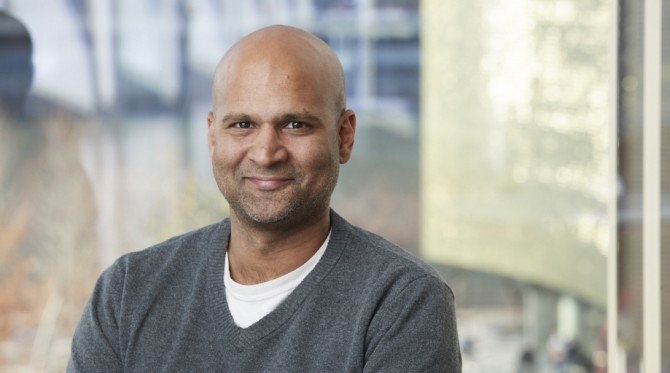Milstein program names faculty director at Cornell Tech
By Kathy Hovis
Tapan Parikh, associate professor in the Department of Information Science at Cornell Tech, has been named faculty director for the Milstein Program in Technology and Humanity at the Cornell Tech campus. He joins his counterpart, Amy Villarejo, professor of performing and media arts, who is faculty director on the Ithaca campus.
The Milstein program is a collaboration between the College of Arts and Sciences and Cornell Tech and offers a unique multidisciplinary curriculum to a cohort of 100 students. The first class of Milstein fellows were recently selected and will begin as first-year students at Cornell this fall.
Parikh’s research focuses on human-computer interaction and the design and evaluation of information technologies for education, civic participation and international development.
“My research group studies how information and communication technologies can empower communities to address shared challenges and determine their collective futures,” Parikh said.
As faculty director for the program at Cornell Tech, Parikh will manage the program for the two summers that Milstein students spend in New York City. Those summers will be filled with classes covering core topics in data analysis, programming and user-centered design, and will also include a class Parikh will teach focused on a service-learning experience.
That class will be patterned after a graduate class he currently teaches that pairs teams of students with community organizations for service and design projects.
“Students are learning a lot of theories and techniques in my class, but I want them to understand how those apply in real-world concepts,” he said. “That’s what is missing in the technology world, this notion of who our is work for and why are we doing it.”
Parikh said technologists can find themselves in a bubble, thinking that they are the only ones capable of solving the world’s challenges.
“As computer scientists, we often think that our thing is the special sauce that makes the world come alive, but the world is already alive,” he said. “We have to recognize people not only as sources of data but as sources of inspiration. That’s my vision for how technology should evolve in the 21st century – that there will be more porous boundaries between the tech makers and the people who use technology.”
Kathy Hovis is a writer for the College of Arts and Sciences.
Media Contact
Get Cornell news delivered right to your inbox.
Subscribe

